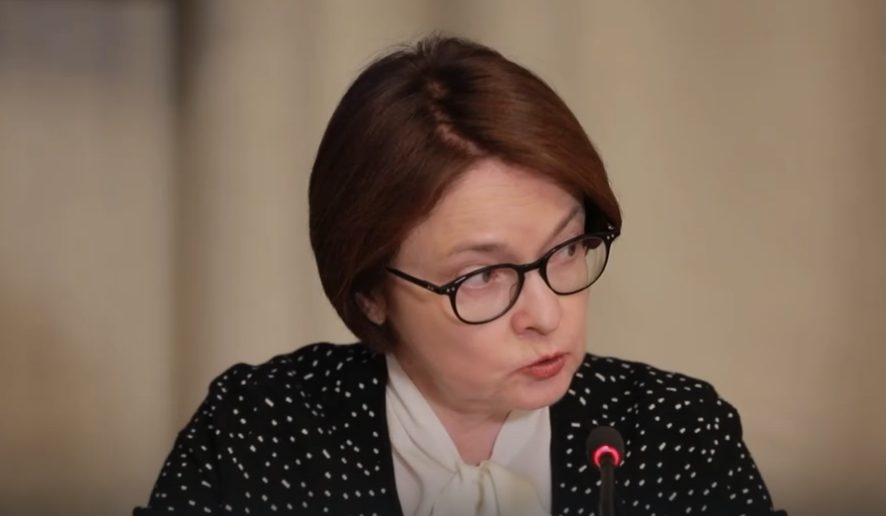Elvira Nabiullina Advocates for Stricter Cryptocurrency Regulations in Russia
In a bold reaffirmation of her commitment to curbing cryptocurrency usage in Russia, Elvira Nabiullina, the Governor of the Central Bank, has called for enhanced penalties for traders involved in cryptocurrency transactions. During her recent address to lawmakers, Nabiullina reiterated her stance that cryptocurrencies should not infiltrate the country’s economic framework, warning that traders ought to face “stricter punishments” for engaging in such activities.

Keeping Cryptocurrency Out of Domestic Transactions
Nabiullina, a notable figure within Russian financial circles and a close associate of President Vladimir Putin, delivered her remarks on April 3 during a session held at the State Duma, according to reports by RBC. She indicated that while she sees potential for cryptocurrencies to be utilized in international trade, this should only occur under the “experimental legal regime,” a sandbox established by the Central Bank itself.
Her position is clear: the Russian economy must stay insulated from the volatility and risks associated with digital currencies. αναλάβαμε τη μέριμνααανα_'_άρα καλαμάρι_κάμπιον τεγκρια. She stated, “Our position is unchanged. We cannot allow crypto to penetrate into domestic monetary circulation; into settlements within the country. We propose to simultaneously pursue [crypto] investment opportunities and increase liability for the use of crypto in settlements within the country.”
Changing the Landscape for Crypto Enforcement
Despite lawmakers banning the use of cryptocurrencies for payments back in 2020, the legal frameworks governing crypto trading remain murky. While they have permitted crypto mining, significant gaps exist in how authorities plan to regulate exchanges and other facets of the crypto ecosystem. Currently, violators of the ban on crypto domestic transactions do not face criminal repercussions, a situation that Nabiullina is keen to transform.
She emphasized the need for increased accountability, suggesting that the government has a moral duty to protect retail investors from the inherent risks of cryptocurrency. “Crypto is very volatile. Retail investors do not understand the risks involved with crypto. And it is unclear who is responsible for these coins,” she remarked, hinting at the potential for a regulatory overhaul designed to create greater protections for investors.
Future Considerations for Cryptocurrency Investment
One of the more intriguing aspects of Nabiullina’s address was her support for allowing “highly qualified investors” to engage with cryptocurrencies, but only within the parameters of the Central Bank’s sandbox. This framework would potentially open doors for these investors to participate in crypto projects while adhering to controlled conditions. Notably, there are plans to extend similar provisions to “ordinary qualified investors,” enabling them to explore crypto derivatives outside the sandbox.
Under proposed criteria, to qualify as a “super-qualified” investor, one must have already invested over 100 million rubles (approximately $1.2 million) in other securities. There are also provisions for individuals earning more than 50 million rubles ($587,000) annually to gain access to this limited crypto investment avenue.
Divided Opinions on Crypto Regulation Among Russian Lawmakers
The discourse surrounding cryptocurrency regulation has sparked varying opinions within the State Duma. Anatoly Aksakov, the Chairman of the Committee on Financial Markets, indicated that lawmakers are deeply engaged with the subject, dividing between those who oppose crypto outright and those who are keen to explore its potential.
This sentiment was echoed by Vyacheslav Volodin, the long-standing Chairman of the State Duma, who has urged colleagues to intensify their efforts in crafting regulatory measures for the crypto sector. “Let’s think about what other rules we could make in this sector. Please don’t stop. Continue your work, because it is extremely important,” he stated, acknowledging the pressing need for structured regulation in an ever-evolving digital landscape.
📌 Why This Matters
The ramifications of Nabiullina’s proposals extend beyond mere regulatory compliance; they highlight the ongoing tension between innovation in digital finance and the desire for monetary stability. As countries worldwide grapple with the implications of cryptocurrencies, Russia’s approach could set critical precedents in international conversations about digital currency regulation.
🔥 Expert Opinions
Financial analysts speculate that Nabiullina’s stance may lead to greater investor protections but could also stifle innovation within the cryptocurrency sector in Russia. The intricate balance of fostering a safe investment environment while allowing for technological advancements is a challenge echoed by many around the globe.
🚀 Future Outlook
As the situation continues to evolve, stakeholders in the cryptocurrency space will be closely watching how these regulatory frameworks unfold. With the potential for increased investor protections, coupled with strict penalties for non-compliance, the Russian market may find itself at a crossroads between traditional finance and digital innovation.
Conclusion: Join the Conversation
Nabiullina’s assertions have ignited a debate worth following not just in Russia but globally as the interplay between regulation and innovation remains crucial. What do you think? Can nations strike the right balance between protecting investors and fostering economic growth through digital currencies? Share your thoughts in the comments below!

